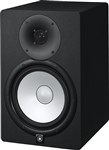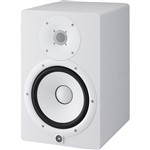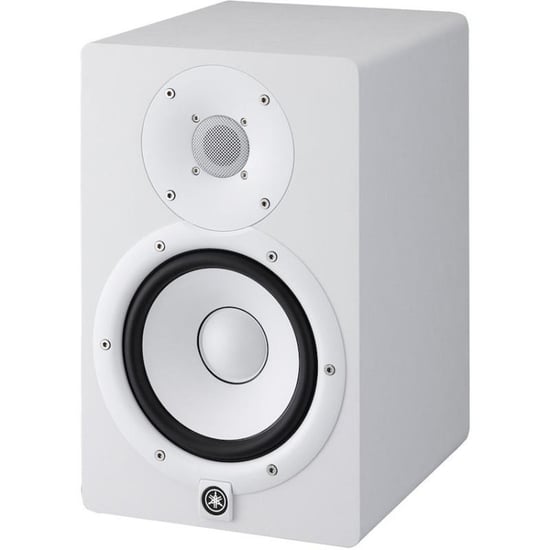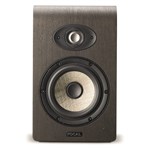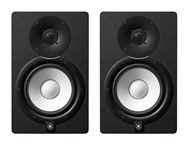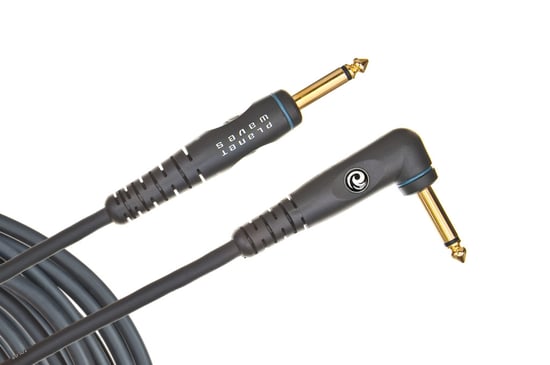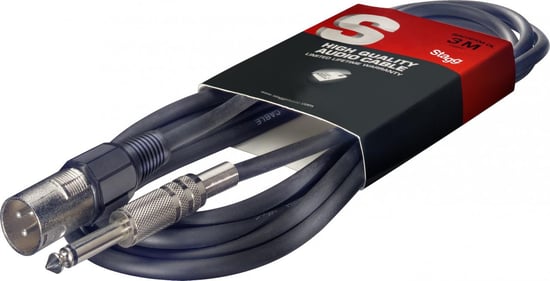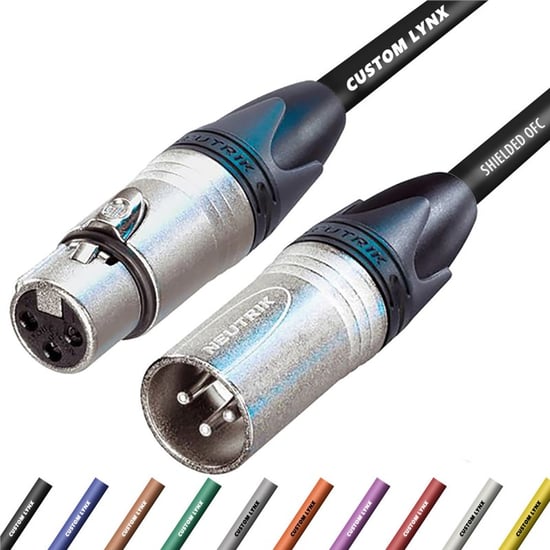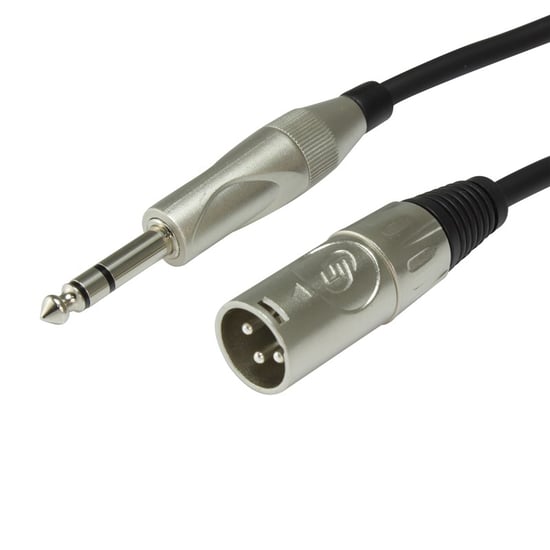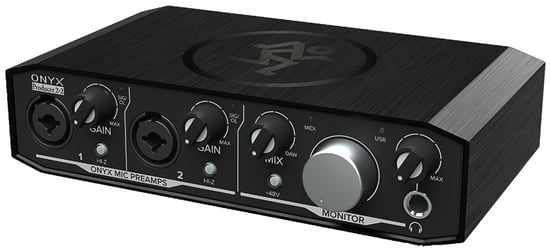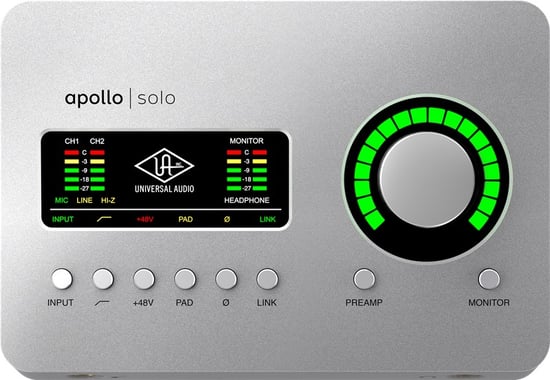Yamaha HS7 Active Studio Monitors with Stands, White Overview
The HS7 bundles comes with a pair of Adam Hall SKDB 039 Studio Monitor Stands
Overview from GAK
The HS7 Studio Monitor from Yamaha is part of Yamaha’s industry-standard HS-Series. The HS7 is a mid-sized, 2-way, bass-reflex, bi-amplified, near-field studio monitor, kitted out with a 6.5" cone woofer and 1" dome tweeter. With a high-frequency range of up to 30kHz, the HS7 pairs a high resolution with a flat response to provide a clean and true sound.
The HS range of active studio monitors come in either sleek Black or striking White, so you can pick the perfect pair to match your studio’s design.
With the HS7, Yamaha took to re-designing the onboard transducers and giving them an advanced magnetic field, the result is a regulated magnetic response and a sound that transitions naturally. The HS7’s 6.5" cone woofer delivers superb audio performance that is further increased by a specially shaped mounting system that is designed to reduce vibration and resonance. The 1" tweeter on the HS7 is as close to lossless as a tweeter can be, high-frequency details are clear and apparent making the HS7 an ideal speaker for fine arrangments and detailed mixing. As with the woofer, the HS7’s tweeter frame has also been designed to reduce resonance that may have an adverse effect on sound quality.
The construction of the overall speaker has also been designed to eliminate vibration and spill whilst maintaining structural integrity. The HS7 has a robust MDF enclosure featuring three-way mitred-joint corners that further reduce resonance.
The HS7 has some fantastic control features to compensate for various spaces and audio scenarios, on the rear face you will find Room Control, High Trim and Mid EQ response control switches. When working in a small studio setting or simply when the speaker is placed close to a wall, ‘Room Control’ can compensate for exaggerated low end caused by wall reflections and “bass traps”, the switch offers (-0, -2 dB or -4dB from 500 Hz and below). ‘High Trim’ works in the same way but for the higher frequencies and the ‘MID EQ’ switch allows you to boost or cut the mid-range depending on your need for a flat response or otherwise.
Connectivity on the HS7 includes XLR, TS and 1/4" TSR inputs that work with both balanced and unbalanced inputs.
The HS active monitor range also comes in White so you can pick up a pair that will blend into your studios aesthetic.
If you require extended low frequency response or speakers that are a bit more suited to even larger rooms, check out the HS8 version (as it features slightly larger woofer cones) and the HS8S subwoofer for studio-shaking bass! If you work in a smaller space where you don’t need to crank up your monitors to get the most out of them, the HS5 variant may be better a choice for you.
We recently sat down with one of our ProAudio specialists to go through some of our customers frequently asked questions. Here’s what they had to say:
What input connections do the Yamaha HS7’s have?
The Yamaha HS series provides you with Male XLR and 1/4 Stereo Jack inputs on the rear panel.
Do I need Acoustic foam (vibropads) for the Yamaha HS7s?
You do not need acoustic foam (vibropads), however, it is advised if you intend to place your speakers on a surface where vibrations may occur. Acoustic foam helps to isolate the speakers so that there is little to no outside influence over their sound. The difference in performance can truly be astounding.
How big are the Yamaha HS7’s?
Dimentions: 8.3 x 13.1 x 11.2" (210 x 332 x 284 mm)
Weight: 18.1 lb (8.2 kg)
How loud is a pair of the Yamaha HS7’s?
The Yamaha HS7’s features a 60W LF woofer and a 35W HF tweeter. Together, each speaker has a 95W output or 190W as a pair.
Will they suit a medium/large studio?
Yes, the Yamaha HS7’s are ideal for medium to large-sized commercial or home-based studios and deliver enough power to comfortably mix in any environment.
The bass extension on the larger models (HS7 & HS8) is better appreciated at higher volumes, making the HS7’s ideal for a larger space where they can be “cranked” a little.
Can I use the HS7’s with my Phone?
Yes. All you need is the correct cable: Dual Jack (for the back of speakers) to Minijack (phone), or Dual Male XLR (for the back of speakers) to Minijack (phone).
Enjoy hearing things like never before!
Can I use them for DJing?
Yes. The HS7’s work great as a DJ monitor because they provide enough output power and clarity to really get into it.
The bass extension on the HS7’s also comes in handy to really hone in on the bass and kick, beatmatching is hard as it is, it’s even harder when you can’t hear what you’re matching!
Are they available in different colours?
Yes. The Yamaha HS series also comes in white!
See HERE: https://www.gak.co.uk/en/yamaha-hs7-active-monitor-white-single/93142
What music genres do they suit best?
Much like the Yamaha HS’s ‘big brother’, the NS10s, the HS series can be used for all styles. The unforgiving and uncomplimentary nature of these monitors makes them ideal for problem-finding and referencing. Unlike studio monitors with boosted bass or treble frequencies, which may sound more flattering at first, HS Series speakers were designed to give you the most honest, precise reference possible across all styles of music.
Having said this, my personal opinion is that the Yamahas truly shine on instrument-based music like Rock, Indie and Pop.
What is the frequency range of the Yamaha HS7’s?
The HS7’s range from 43Hz to 30kHz.
The high-end control of these monitors is next to none at this price range and the bass extension on the larger models (HS7 & HS8) make the HS7’s a truly pleasurable listening experience.
What is Room Control and High Trim?
On the rear panel, you will find ROOM CONTROL and HIGH TRIM. These allow you to adjust the performance of your monitors to better suit your space.
Room Control is used to adjust the bass performance depending on how close your speakers are to the wall. 0 is no attenuation (reduction of amplitude). -2 and -4 attenuate the low end from 500hz down by either 2db or 4db. I recommend you find a song you know really well, then find which setting works best for your ears and space.
High Trim is used for boosting or cutting the HS5’s response 2dB above 2kHz, to adjust accordingly for a dull (boost) or live (cut) space.
Do I need a Subwoofer?
You do not need a Subwoofer with these monitors, however, it is advised if you want an extra level of control over the bass response.
The Yamaha HS8S Subwoofer is ideal for those of you who desire the signature flat-frequency character of Yamaha’s nearfield reference monitors, yet would like to hear more bass than is provided by just the HS monitors alone. This could be the case with bass-driven genres like Electronic music for instance.
Bass Extension with HS8S - 22Hz
Bass Extension without HS8S - 43Hz
Please note: Image for illustrative purposes only. Accessories subject to change without notice.
- A low resonance enclosure built using a three-way mitre-joint technique ensures that the corners of the speaker are firmly anchored leading to dramatically improved durability and the elimination of unwanted resonances that can colour the original sound. Yamaha's 'Vortex Sound Control' technology is deployed to decrease unwanted airflows around the speaker ports. This in turn reduces audible noise by up to 6dB.
- This speaker is a 2-way bass-reflew bi-amplified nearfield studio monitor with 6.5" cone woofer and 1" dome tweeter
- 43Hz - 30kHz frequency response
- 60W LF plus 35W HF bi-amped system (95W total)
- ROOM CONTROL and HIGH TRIM response controls
- XLR and TRS phone jack inputs - balanced or unbalanced








